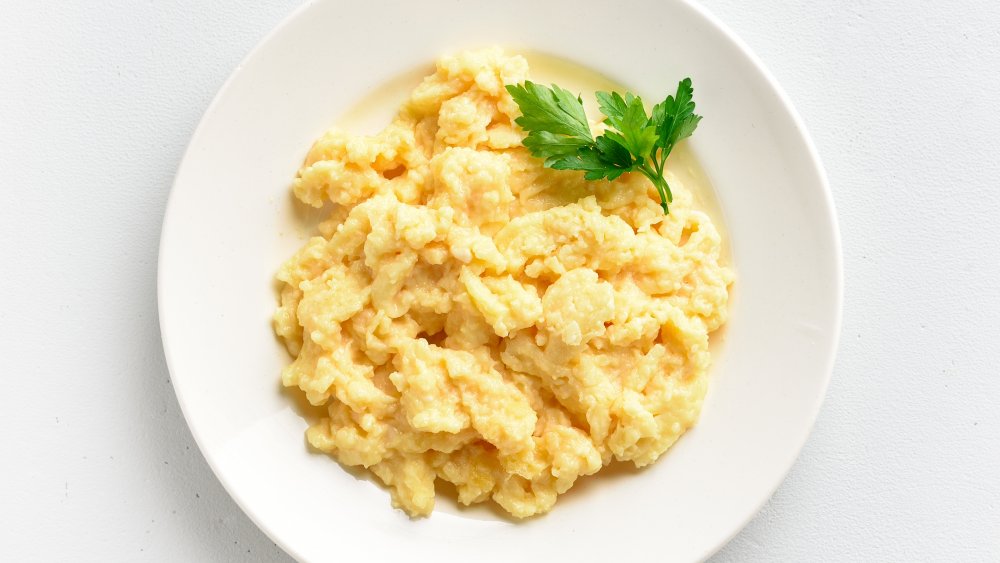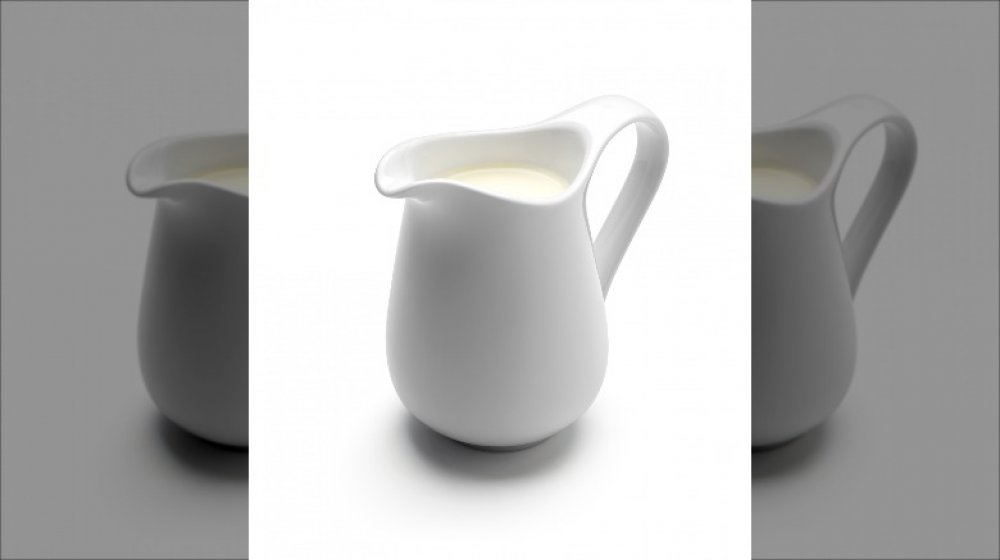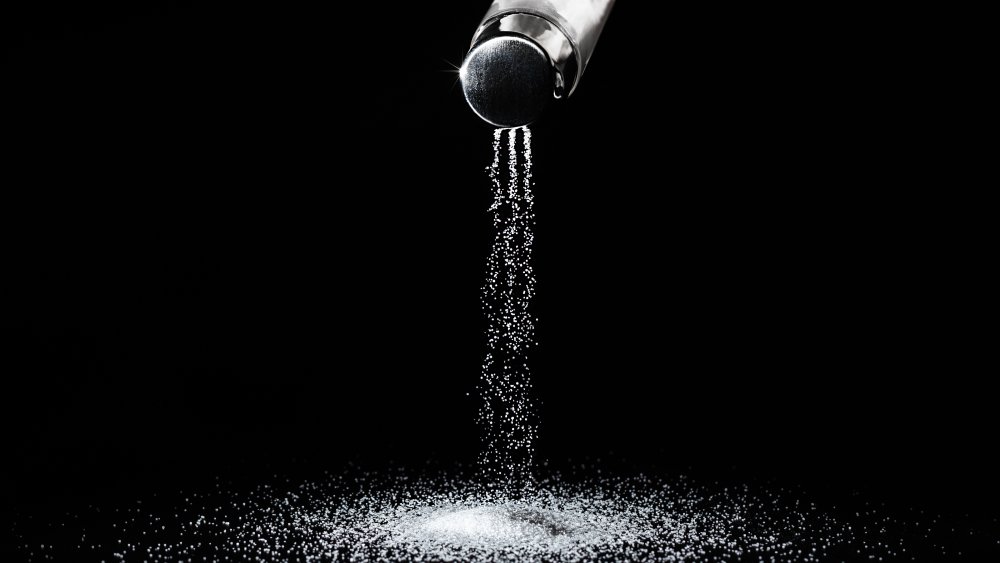The Common Myths About Scrambled Eggs That Are Actually False
Scrambled eggs are a deceptively simple dish. They seem like they should be so easy to make — all you've got to do after all, is just crack a few eggs, right? Then apply heat, scramble, and go. And yes, that's more or less the technique, but there's still oh-so-many ways to make a mess of things and wind up with a plateful of dry, rubbery, even green eggs that even Sam I Am wouldn't want to touch.
And of course any dish as basic as scrambled eggs is also a magnet for tweaks, tips, and hacks as well as secret ingredients that promise to improve the dish, ranging from garlic powder, to soy sauce, to baking powder. The real trick to applying any of these so-called "improvements" however, lies in knowing just which of these helpful hints can really improve your scrambled eggs, and which ones are more likely to render them inedible. In other words, should you believe common myths about scrambled eggs? Or would most cooks tell you they are actually untrue?
Myth: Adding dairy products will make your eggs extra-creamy
The myth that adding a splash of milk, or cream, or even a spoonful of sour cream will make your scrambled eggs rich, creamy, and delightfully-decadent, and lusciously luxurious, and all manner of other food accolades is so prevalent that it's even got celebrity endorsers including Chrissy Teigen (a fan of heavy cream). Ree Drummond uses half-and-half in her scramble. While it sounds good in theory — creamy ingredients should equal creamy eggs — in reality, there's a good reason why you shouldn't add dairy to your eggs.
For one thing, milk or cream can detract from the flavor of the eggs themselves. For another, such an addition changes the texture, which can result in rubbery eggs. If you overdo it on the splash of dairy, you could also make the egg mixture too liquidy, so you'll have runny eggs. Or, you may overcompensate and cook 'til the liquid evaporates, in which case your scrambled eggs will be dry, dry, dry. Do your eggs a favor and ditch the dairy, despite what the Pioneer Woman may say.
Myth: Salting eggs before scrambling will turn them tough
This is another myth with a celeb endorser, and one who's actually a real chef. Gordon Ramsay believes that salting your eggs before you scramble them will result in eggs that are grey and watery. As it turns out, though, Gordon's fear of egg salting may be entirely unfounded. An experiment conducted by Serious Eats found that adding salt to eggs ahead of cooking made very little difference in their texture, although the eggs to which salt had been added an hour ahead of cooking were slightly more tender than the ones where salt had been added just prior to their trip to the pan.
The Food Lab's J. Kenji López-Alt spoke with Bon Appetit on the subject of egg salting, as well, and he recommends salting eggs about 15 minutes prior to scrambling. According to Kenji, this will allow the eggs to retain more moisture because the salt breaks down proteins and forms a "net" of sorts that will hold in the moisture as the eggs cook. No tough eggs here!
Myth: You can't scramble eggs in the microwave
This one falls under more of a general cooking myth category, the one that dismisses all food made in a microwave as being automatically subpar. Okay, we get that there would have been a certain amount of backlash against the whole "cook everything in the microwave" fad that started in the '70s when microwaves first became de rigueur for every well-equipped kitchen. Come on, though, that was over 40 years ago! By now we've long since learned which foods should never be cooked in the microwave, but also which foods are definitely nukeable, and scrambled eggs actually lend themselves well to microwave cookery.
The Nordic Food & Living blog says microwaving is the preferred method if scrambling eggs for just one or two people. Simply whisk together a few eggs with a little salt and pepper in a microwave-safe bowl, then cook on full power for about a minute and a half. Stir the eggs, then microwave for maybe 1 minute more.



